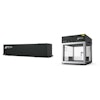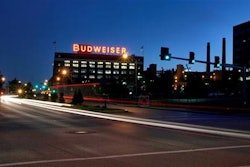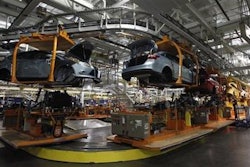| This Jan. 31, 2006 file photo, boxes of Kellogg's Special K cereal are on display at a supermarket in an Omaha, Neb. The fixation on calorie counts that defined dieting for so long is giving way to other considerations, like the promise of more fiber or natural ingredients. The shift is chipping away at the popularity of products like Diet Coke, Lean Cuisine, Special K and Yoplait Light, which became dieting staples primarily by virtue of being calorie-stripped alternatives to people’s favorite foods. (AP Photo/Nati Harnik, File) |
NEW YORK (AP) — Kellogg's cereal sales are falling, and the company expects the trend to persist even as it launches a major ad campaign touting the nutritional benefits of cereal.
The maker of Frosted Flakes, Special K and Mini-Wheats said Thursday that sales for its U.S. breakfast division fell 5.5 percent in the first quarter, as gains in Pop-Tarts were dragged down by continuing declines in cereal.
Cereal sales in the U.S. have been sluggish as Americans increasingly reach for alternatives such as Greek yogurt or breakfast sandwiches from fast-food chains. Even within the cereal aisle, Kellogg is facing more competition from smaller players that position themselves as healthier alternatives.
In a phone interview, Kellogg CEO John Bryant said the company had a variety of strategies to improve cereal sales in the months ahead. The primary tactic will be a marketing campaign that reminds people of how much protein is in a bowl of milk and cereal.
"What we've seen over the last few years is a protein-seeking behavior" from shoppers, Bryant said.
In a nod to the growing concerns people have about artificial ingredients, Bryant also said Kellogg will remind people of the "simplicity of the food, that this is food directly from the farm to the table." He explained that a cornflake is corn that has been rolled and toasted.
Kellogg also plans to push the idea of cereal as a snack, whether it's a late-night treat or a topping for yogurt. And to go after people looking for convenience, it even rolled out a beverage that's positioned as a drinkable cereal last year.
Rival General Mills, which makes Cheerios, has rolled out a similar drink.
In addition to the general movement away from cereal, some of Kellogg's troubles have to do with its brands in particular. Its Kashi line, for instance, has fallen out of favor with the health set because it failed to keep pace with trends, such as offering options without genetically modified ingredients.
Bryant noted that Kellogg has new products planned for the line that should address some of those shortcomings.
Despite all the efforts, Kellogg still expects declines to continue in cereal throughout the year. Bryant said the marketing campaign will ease those declines.
For the quarter, Kellogg Co. said revenue fell 3 percent to $3.74 billion. That missed Wall Street's estimate of $3.81 billion.
Cost-cutting helped lift net income to $406 million, or $1.12 per share, for the January-March period. A year earlier, Kellogg earned $311 million, or 85 cents per share.
Removing certain items, earnings were $1.01 per share — a penny below the company's adjusted profit a year ago. Analysts expected 97 cents per share for the latest quarter, according to FactSet.
Kellogg, based in Battle Creek, Michigan, left its outlook for the year unchanged.
It expects core sales to increase by about 1 percent and core earnings per share to increase between 1 percent and 3 percent.






















